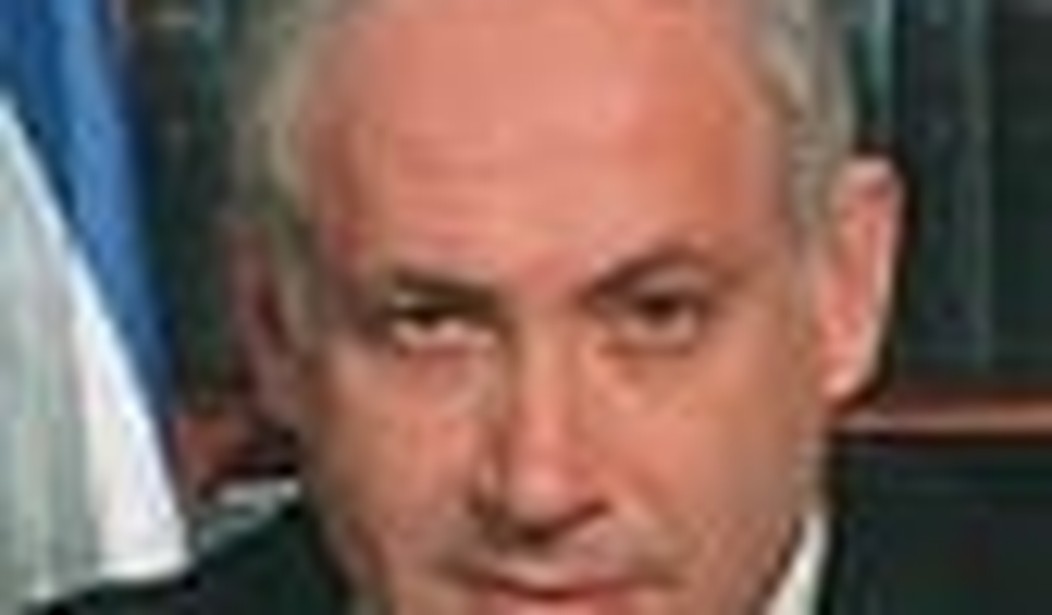The hottest ticket in town this season won’t be any number of rehashed formal D.C. galas, but a courtside seat to a potentially defining moment in global security and the future of the Jewish state.
The American Israel Public Affairs Committee’s annual policy conference comes at a critical juncture when Washington is tersely trying to stop Israel from launching a strike against Iran’s nuclear facilities — and Israel, which has encountered more head-butting than hand-shaking from this administration, will stress that time is of the essence in its decision.
And, buoyed by a pack of congressional supporters and thousands of AIPAC delegates, Israel is likely to stress just that to a hedging White House: It is our decision. If you’re not going to act, we will.
The conference comes on the heels of Iran brusquely telling the latest group of International Atomic Energy Agency inspectors “no peeking” and threatening its own preemptive strikes against anyone who even thinks bad thoughts about the Islamic Republic.
AIPAC just announced this week that President Obama will be addressing the policy conference, which will be held March 4-6 at the Washington Convention Center.
Obama also addressed AIPAC last year; in 2010 the administration sent Secretary of State Hillary Clinton and in 2009 Vice President Joe Biden addressed the delegates.
As a senator running for the White House, Obama addressed AIPAC in 2008. “Part of our commitment must be speaking up when Israel’s security is at risk and I don’t think any of us can be satisfied that America’s recent foreign policy has made Israel more secure,” he said back then. “…I will ensure that Israel can defend itself from any threat from Gaza to Tehran. Defense cooperation, defense cooperation between the United States and Israel is a model of success and it must be deepened.”
Biden is being sent to Mexico and Honduras March 4-6, the White House announced today.
Obama, meanwhile, will be double-teamed at AIPAC: Both Israeli Prime Minister Benjamin Netanyahu and Israeli President Shimon Peres are coming to speak.
On March 5, Obama and Netanyahu meet at the White House. National Security Adviser Tom Donilon just returned from Israel in an effort to pave the way for those talks.
Netanyahu also addressed AIPAC last year, the night before he addressed a joint session of Congress. That May 2011 meeting between Obama and Netanyahu was described as “frosty,” a day after Obama stated that a Palestinian state should be based on pre-1967 borders.
“Israel wants peace, I want peace,” Netanyahu said after the Oval Office meeting. “But the only peace that will endure is one based on reality.”
Netanyahu’s impassioned address, sans teleprompter, to a packed Congress was much more warmly received — presidents would wish to get such unified support in their State of the Union addresses.
Six months later, Obama was caught in a not-so-private exchange picked up by microphone at the G-20 summit in Cannes.
“I cannot stand him. He’s a liar,” Sarkozy said of Netanyahu.
“You’re fed up with him? I have to deal with him every day,” Obama replied.
The most recent rift between Israel and Washington was sparked by the comments by Chairman of the Joint Chiefs of Staff Gen. Martin Dempsey, who said in a CNN interview aired Sunday that the U.S. was trying to persuade Israel to not strike Iran, and branded Tehran a “rational actor.”
Peres has been especially vocal about Israel’s lack of tolerance for Iran lately, suggesting a unified front from the Israeli leaders coming into Washington. “Nuclear weapons mustn’t be allowed to fall into the hands of Iran’s Ayatollah regime,” Peres said at the Herzliya Conference on Jan. 31. “It is the duty of the international community to prevent evil and nuclear [weapons] from coming together. That is the obligations of most of the leaders of the free world, one which they must meet.”
To heap suspense upon the tension that should be evident in the key AIPAC addresses, this could very well be the last conference — and last Oval Office meeting — before Israel launches spring strikes.
Adding to the opposition Obama will face is a new addition this week to the speakers’ list: Former House Speaker and GOP presidential hopeful Newt Gingrich.
Representing congressional leadership on the AIPAC speakers’ roster this year will be Senate Minority Leader Mitch McConnell (R-Ky.) and House Minority Leader Nancy Pelosi (D-Calif.). This carries on a tradition of rotating the leadership in each year’s speaking slots: Last year, House Speaker John Boehner (R-Ohio) and Senate Majority Leader Harry Reid (D-Nev.) addressed the conference.
Other lawmakers on the list of plenary speakers are Sens. Carl Levin (D-Mich.), chairman of the Armed Services Committee, Joe Lieberman (I-Conn.), and Johnny Isakson (R-Ga.).
More than a dozen members of the House are also slated to participate in breakout-session panels, including Foreign Affairs Committee Chairwoman Ileana Ros-Lehtinen (R-Fla.) and Ranking Member Howard Berman (D-Calif.). Other notables include pro-Israel House stalwarts Brad Sherman (D-Calif.) and Eliot Engel (D-N.Y.), and Israel missile defense Appropriations advocate Steve Rothman (D-N.J.).
They’ll converge upon a center that will be teeming with American supporters of Israel, surrounded by Occupy AIPAC demonstrators ready to defend Iran, and permeated by the reality that this could be three days that go down in history.
As the sand in the nuclear hourglass runs out, what will the final message be from Netanyahu and Peres — and, when faced with the bipartisan voices of support for the Jewish state, where will the White House stand?
PJM will be covering the AIPAC conference live March 4-6.









Join the conversation as a VIP Member